On August 28, 2025, the second Liaoning University National Development Youth Forum hosted by LNU and undertaken by the Faculty of Economics of LNU was successfully held at the Puhe Campus of Liaoning University (LNU). This session received nearly 100 papers from 45 domestic universities, with over 80 experts, scholars and young students participating in the conference.
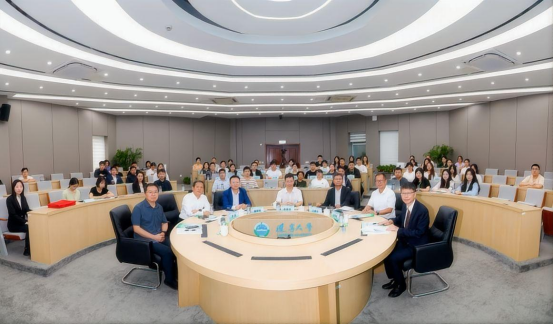
The opening ceremony was hosted by Professor Huo Weidong, Deputy Director of the Faculty of Economics of LNU. Professor Yu Miaojie, Deputy Secretary of the Party Committee and President of LNU, attended the opening ceremony and delivered a speech. On behalf of LNU, he extended a warm welcome to the experts, scholars and young students participating in the forum, briefly introduced the important progress and historic breakthroughs made in the Double First-Class construction of LNU in recent years, explained the original intention of holding the LNU National Development Youth Forum, and placed sincere expectations on the participating young students. President Yu Miaojie also pointed out that contemporary youth should cultivate a strong sense of family and country, integrate their personal development into the tide of the country and the times, and encouraged young scholars to base themselves on China’s reality and carry out research with practical value. He added that LNU has always held an open attitude and sincerely welcomes outstanding young students from all over the country to come for exchanges and visits, further their studies, and realize their academic ideals and life plans.
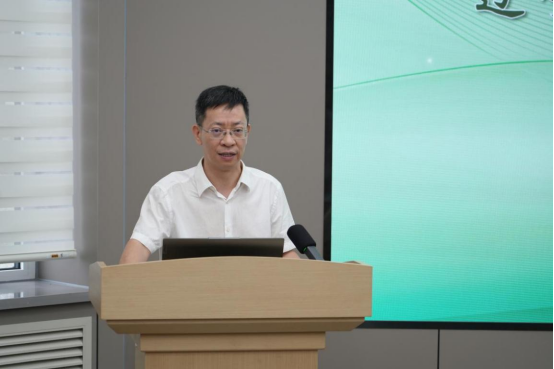
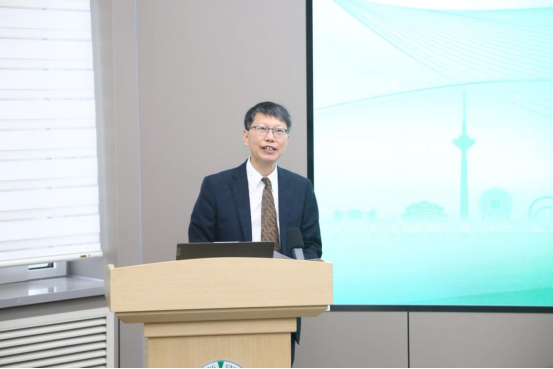
Subsequently, Professor Yu Miaojie delivered a speech titled ‘Sino-US Economic and Trade Game’. By integrating the time nodes and game situations of China and the United States in different periods, he divided the Sino-US economic and trade game into three stages: China’s defense, Sino-US stalemate and China’s victory. He believes that although the Sino-US trade war is long-term, China will eventually win. It is expected that shortly after the end of the 15th Five-Year Plan, China’s total GDP may surpass that of the United States. China has significant advantages in supply capacity, market demand, talent resources, and institutional mechanisms, while the US trade protectionist policies lack reasonable logical support. China has the confidence and ability to cope with this long-term challenge.

At the end of the opening ceremony, Professor Yu Miaojie presented certificates of honor to the award-winning authors of the forum.
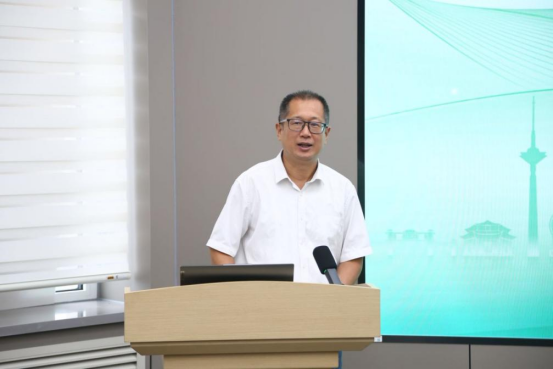
The expert speech session of the forum was hosted by Professor Wang Weiguang, Deputy Director of the Faculty of Economics of LNU. Professor Wang Zhenyu, Dean of the Local Finance Research Institute of LNU, Professor Dong Baomin, Deputy Director of the Faculty of Economics of LNU, Professor Han Liangliang, Dean of the Business School of LNU, and Professor Li Zheng, Dean of the School of Economics of LNU, delivered speeches respectively.
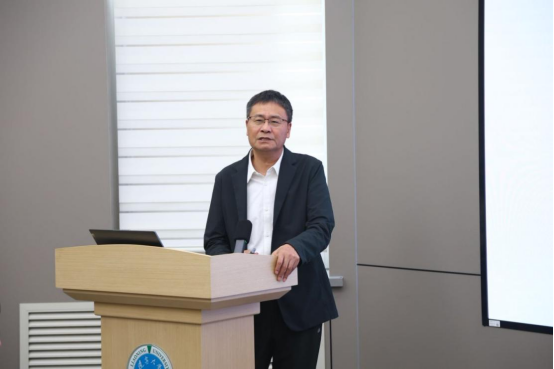
Professor Wang Zhenyu delivered a speech titled ‘Local Government Financial Power and Its Interpretation - Based on Specific Considerations of Increasing Local Independent Financial Resources’. Based on the analysis of the essentials and realistic scenarios of increasing independent financial resources, under the new cognitive framework of powers and responsibilities, financial power, financial resources and responsibilities, he summarized the realistic characteristics of Chinese-style fiscal decentralization. He stated that they followed the approach of fiscal authorization, fiscal empowerment and fiscal decentralization, emphasized the need to adhere to integrity and innovation, actively plan major landmark reforms, endow local governments with necessary financial power, and help modernize the local fiscal governance system and governance capacity.
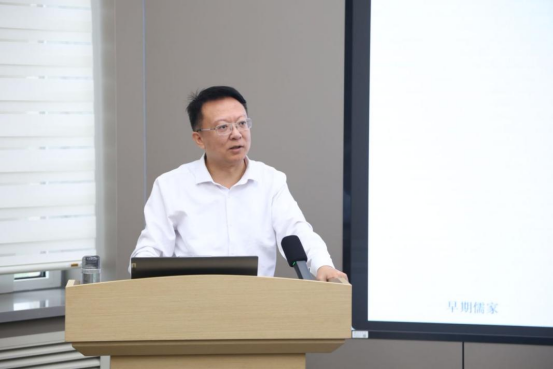
Professor Dong Baomin delivered a speech titled ‘The Origin of China’s Governance: On the Feudal Origin of the County System’. Based on the research and analysis of many handed-down documents, unearthed materials and bronze inscriptions, he pointed out that the enfeoffment system of ‘protecting the Zhou Dynasty with vassals’ in the Western Zhou Dynasty led to inherent deficiencies in the royal finance of the Western Zhou Dynasty, weakening the financial extraction capacity of the Western Zhou royal family. However, a series of subsequent reforms characterized by official appointments in the Western Zhou Dynasty worked to improve the national capacity in the middle and late Western Zhou Dynasty. Although the bureaucracy of the Western Zhou Dynasty cannot be fully interpreted as a modern bureaucracy in Max Weber’s sense, it has essentially transformed into an official selection system with merit selection as its essence and performance as the criterion.
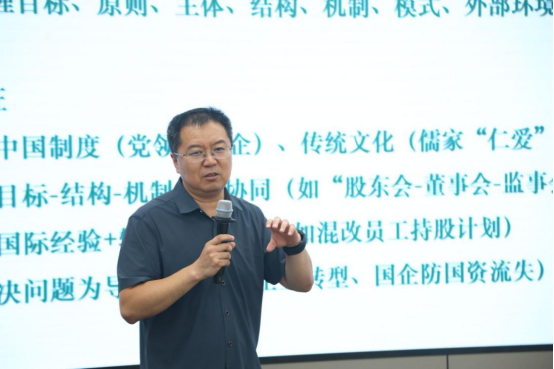
Professor Han Liangliang delivered a speech titled ‘Thoughts on Constructing an Independent Knowledge System of Chinese Corporate Governance’. Combining the significance and historical background of constructing an independent knowledge system of Chinese corporate governance, he expounded the core connotation and key characteristics such as locality and systematicness of this system. He emphasized that it takes Marxist political economy, traditional Chinese management thoughts and modern Western management theories as its three major theoretical foundations, covering four core contents: governance goals, structure, mechanism and mode. He also put forward the construction path from four aspects: theoretical research, practice summary, international exchanges and talent training, and providing theoretical support and practical direction for promoting the modernization of China’s corporate governance system.
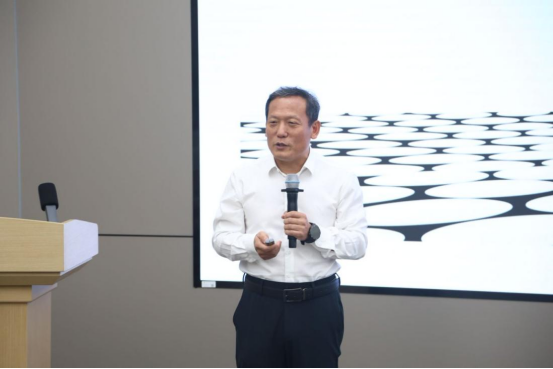
Professor Li Zheng delivered a speech titled ‘Building a Modern Industrial System through Multiple Collaboration’. Starting from the characteristics of new productive forces, he pointed out that their digital, green and integrated development put forward new requirements for the ownership of means of production. He emphasized that we should give full play to the advantages of China's basic economic system, further deepen the reform of state-owned assets and state-owned enterprises, enhance the innovation vitality of state-owned enterprises, improve the market environment for fair competition, promote the coordinated development of public ownership and non-public ownership economies, and provide solid support for the development of new productive forces by building an institutional system conducive to scientific and technological innovation.
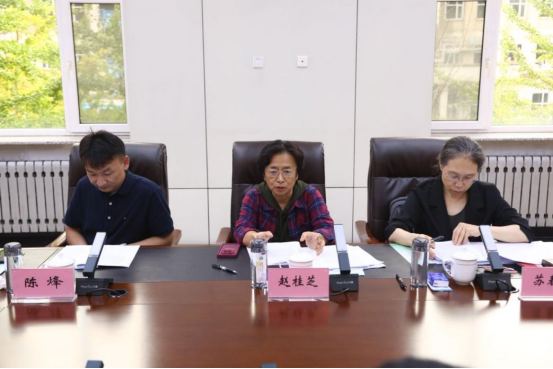
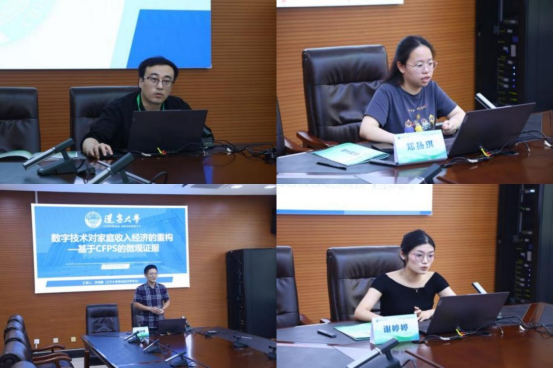

In the afternoon, Professor Zhao Guizhi, Dean of the Taxation Research Institute of LNU, Professor Su Chunyan, Vice Dean of the School of Public Administration of LNU, and Associate Professor Chen Feng, Vice Dean of the Institute of Machine Learning and Big Data Algorithms of LNU, were invited to attend the Sub-forum (I) and serve as comment experts. Seven selected authors, namely Guo Anhao, Zheng Yangqi, Li Runbo, Xie Tingting, Ma Ruitao, Peng Yu and Guo Junning, gave reports respectively under the titles:
· ‘Historical Evolution and Prospect of China’s Urban-Rural Integration System Innovation’
· ‘Do Comprehensive Demonstration Cities for Energy Conservation and Emission Reduction Fiscal Policies Enhance Corporate Green Competitiveness? Evidence from China’
· ‘The Reconstruction of Family Income Economy by Digital Technology - An Empirical Analysis Based on CFPS Data’
· ‘Customer Artificial Intelligence, Supply Chain Spillovers and Supplier Capacity Utilization’
· ‘Research on the Construction of Discourse System for the Modernization of Grassroots Governance in China’s Megacities under the Background of Big Data’
· ‘Digital Empowerment for High-Quality Economic Development in Border Areas
· ‘Path Innovation and Research Prospect of Rural Revitalization in Xizang’.
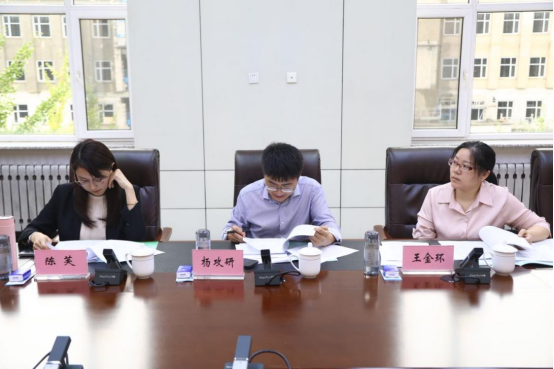
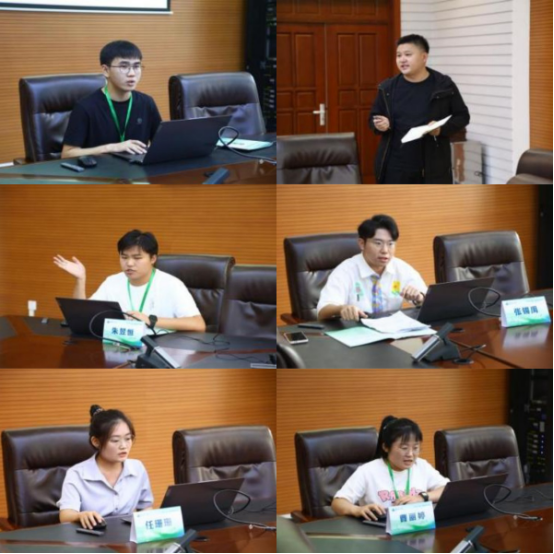
Professor Yang Gongyan, Deputy Dean of the School of International Economics and Politics of LNU, Professor Wang Jinhuan, Vice Dean of the School of Mathematics and Statistics of LNU, and Associate Professor Chen Fu, Deputy Director of the Institute of Environmental Economics of LNU, were invited to attend Sub-forum (II) and serve as comment experts. Six selected authors, namely Wu Shangxuan, Li Guangliang, Zhu Yuheng, Zhang Xiyu, Ren Shanshan and Cao Liting, gave reports respectively under the titles:
· ‘Research on the Mechanism of Public Data Opening’
· ‘Empowering Local Fiscal Sustainability’
· ‘Urban-Rural Income Gap, Structure of Upbringing Costs and Fertility Rate’
· ‘Construction Mechanism of Social Participation of Urban Low-Age Elderly - An Explanation Based on External Embedding and Endogenous Motivation’
· ‘On the Dual-Track Compound Normative Narrative of China's Financial Legal System Construction, Public Data Opening, Intellectual Property Protection and Cooperative Innovation Effect’
· ‘Public Safety Challenges and Countermeasures of Heze International Peony Cultural Tourism Festival from the Perspective of Social Governance’.
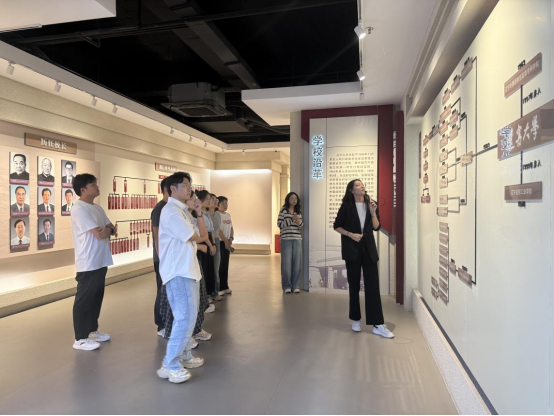
During the forum, participating young students visited the History Museum of LNU.